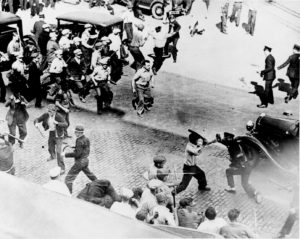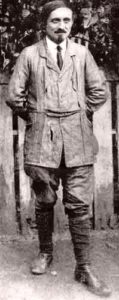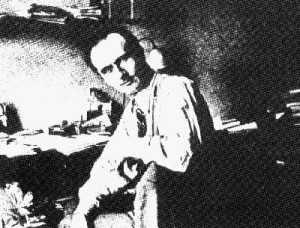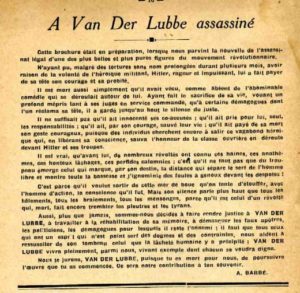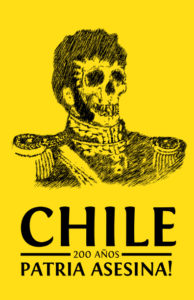
Publicación
“… Entonces lo que hizo Portales fue organizar y costear ‘de su platita’ un ejército mercenario y dio un golpe de Estado y con ese ejército con- struyen un Estado ‘a su pinta’, un Estado con un ejército privativo de esa oligarquía y que gobierna desde 1833 hasta 1925. Este Ejército además actuaba como policía interna debido a la incapacidad de la otra policía para con- trolar a las masas marginales y como ejército externo. Y el único método para establecer el orden fue ‘matar rotos’… El ejército chileno ha combatido más hacia adentro que hacia afuera. Comenzó combatiendo a los Mapuche en la frontera, primero, y luego durante todo el siglo XIX y XX yo he contado 23 masacres y todas contra la clase popular”
SIGLO XIX: CHILE, PAIS EN GUERRA
 El estado chileno habría sido constructor de la sociedad, a través de la guerra. Históricamente se procedió por medio de las armas, se incorporó la violencia como tradición institucional que ha constituido una memoria cultural para resolver nuestros conflictos. Se comprende entonces el lema del Escudo Nacional “por la razón o la fuerza”.
El estado chileno habría sido constructor de la sociedad, a través de la guerra. Históricamente se procedió por medio de las armas, se incorporó la violencia como tradición institucional que ha constituido una memoria cultural para resolver nuestros conflictos. Se comprende entonces el lema del Escudo Nacional “por la razón o la fuerza”.
La memoria social chilena fue modelada en la violencia. Si se analiza la forma en que se han resuelto los problemas y las contradicciones sociales tanto en el plano institucional como en el plano político y social, la solución ha sido militar en todos los casos, sin excepción. La sociedad chilena, ha estado marcada por el ejercicio de una violencia, que a veces ha sido militar y a veces de otro tipo.
Continue reading “Chile Patria Asesina” →

